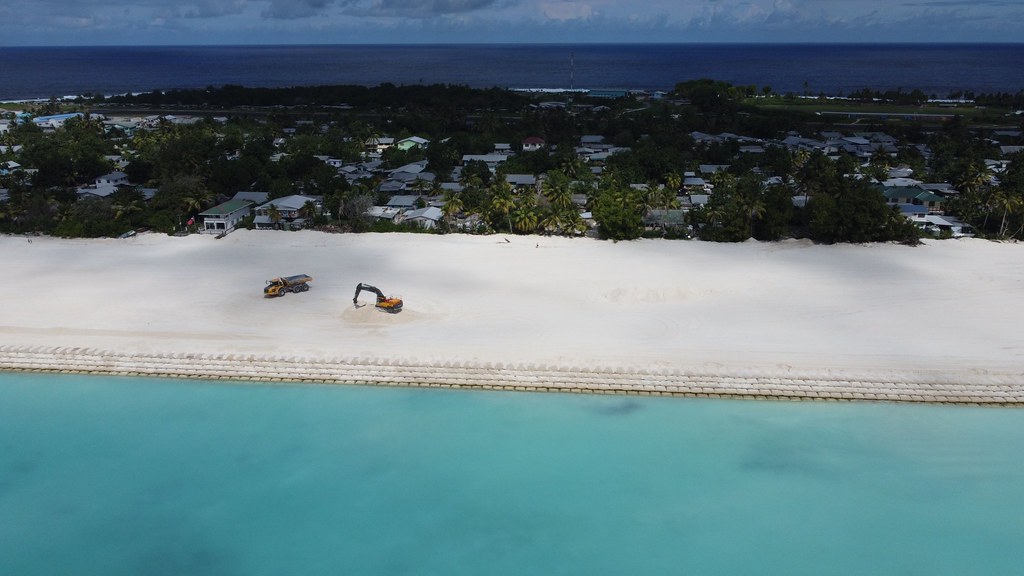 After many months of research, I present the final document of the dissertation that I am submitting to the PhD committee at my University. The full text can be downloaded here. Unfortunately, it is in Spanish, and with only a small abstract in English, but The Seasteading Institute is planning to have it translated into English. (In fact, if you know of an inexpensive way to get a 300 page technical document translated from Spanish to English, please contact randy at www.seasteading.org)
After many months of research, I present the final document of the dissertation that I am submitting to the PhD committee at my University. The full text can be downloaded here. Unfortunately, it is in Spanish, and with only a small abstract in English, but The Seasteading Institute is planning to have it translated into English. (In fact, if you know of an inexpensive way to get a 300 page technical document translated from Spanish to English, please contact randy at www.seasteading.org)
I would like to give thanks to all the community members that have read the blog posts and made comments on them. It has been great feedback and encouragement. Thanks to all of you!
ABSTRACT
The idea of floating cities has been a topic that has been in the collective imagination since the nineteenth century, being addressed in many areas of science and the arts (architecture, literature, engineering, etc.). Most particularly from the late twentieth century, floating cities have been reframed as a technically possible challenge. In most cases, however, the proposals were lax and they simply sought media coverage for their authors.
This dissertation aims to create order around the idea of “floating city”, questioning why humanity ought to establish such cities. To do this, we flee from the media term of “floating city” and we use the broader “ocean colonization”, which we define as “the establishment of autonomous ocean communities aboard artificial platforms”. In turn, we distinguish four different forms of ocean colonization responding to four different purposes: 1) expansion of terrestrial space, 2) mobile settlements, 3) semi-permanent settlements for access to marine resources; 4) creation of micronations. It is this fourth concept which will serve as the basis of review for the topic of ocean colonization. Thus, the aim of the dissertation is to analyze the possible options (present and future), which suggest Marine and Ocean Engineering for the establishment of ocean autonomous communities that allow the creation of ocean micronations. At the same time, we will try to explain the future evolution of the other three aspects of ocean colonization.
In Part I – State of the Art,we review the more ambitious ocean colonization projects, set for the creation of ocean micronations (such as the Principality of Sealand), as well as set by professionals from outside the Naval Architecture and Ocean Engineering for their media-driven “floating cities” (such as “Green Float” from Shimizu Corporation). We show that all of these attempts and projects have failed by not taking into account a number of requirements set out in Part II of the dissertation.
In Part II – Approach and Problems, we develop the four requirements to be met by any ocean colony: 1) economic and trade requirements: 2) technical requirements of the platform; 3) legal requirements, or external relations, 4) self-government requirements, or internal relations. These requirements are common to the four forms of ocean colonization, although the way approach them differs relative to each form. The dissertation research as outlined in the objective, focuses on technical and legal requirements (section 2 and 3) to create a micronation in the ocean. And for doing it, we will investigate the existing platforms.
Thus, in Part III – Results, we present the study that we have made about the platforms used in the first three forms of ocean colonization that best suit the creation of ocean micronations, as well as the legal aspects of them. These platforms are: cruise ships and residential-condo ships; coastal and offshore floating hotels or flotels; the Very Large Floating Structures VLFS; and offshore concrete structures. At the end of this section, we examine the legal and regulatory aspects of ocean colonization as per maritime law.
In Part IV – Analysis of Results, we try to establish the future trends in each of the forms of ocean colonization studied before. We devote more space to ocean colonization with the purpose of creating a micronation: taking into consideration the platforms studied, we propose a calendar and a hypothesis of how this form of ocean colonization could evolve, which is the purpose of this dissertation.
Finally, in Part V – Conclusions, we conclude that the creation of ocean micronations in the future will be marked by the evolution of the other three forms of ocean colonization. That is, the creation of a ocean micronation (or floating city) is not an purpose in itself, but it will be the result of the evolution of the other three forms of ocean colonization: 1) expansion of terrestrial space (where the solutions of the VLFS are presented as a good alternative), 2) mobile settlements (where the leading exponent are the cruise ships, that will become in the future authentic mobile floating cities), and 3) access to marine resources (that to exploit them, it will necessitate permanent floating cities).

Is the Seasteading Institute the ones that are building the floating cities/structures and selling the space for businesses? Where is your country stationed?
The Seasteading Institute is facilitating the the creation of floating city-states. Entrepreneurs will build the cities themselves throughout the world’s oceans.